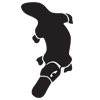Panel held on December 6th, 2009, at the University of Chicago.
A moderated panel discussion and audience Q&A bringing together three leading figures of the Pakistani labor movement to talk about workers rights, women’s rights, the struggle to organize in the shadow of the Taliban, and the impact of the ongoing war in Afghanistan on the workers of Pakistan. These topics will be explored in light of the increasingly pressing need to reconstitute an international Left.
Panelists:
Rubina Jamil
President, Working Women Organization; and Chair, All Pakistan Trade Union Federation
Atiya Khan
Platypus Affiliated Society; and PhD candidate in History at the University of Chicago
Introduced and moderated by Spencer Leonard, Platypus Affiliated Society; Editor-in-Chief, The Platypus Review; and Collegiate Assistant Professor in the Social Sciences, University of Chicago
Background reading:
The Failure of Pakistan: A Concise History of the Left
The Poverty of Pakistan’s Politics
At the 1st annual international convention of the Platypus Affiliated Society, in Chicago, June 12-14, 2009, the concluding plenary event, a discussion on Platypus's theoretical stance, its raison d'etre, and where the project will be going.
Richard Rubin speaks on "Four Types of Ambiguity;" Chris Cutrone speaks on "History, Theory;" and Ian Morrison speaks on "What is to be Done?" Audience question-and-answer discussion follows. Held on June 14th, 2009 at the School of the Art Institute of Chicago.
Transcript can be found on our website (Click below):
The Platypus Affiliated Society presents a moderated panel discussion and audience Q&A addressing issues of global capital, trade unions, workers rights, international solidarity, and immigration, in light of recent economic and political change. Held on Thursday April 23, 2009, at the School of the Art Institute of Chicago.
Speakers:
Abraham Mwaura, United Electrical, Radio and Machine Workers of America, organizer at the Republic Windows & Doors Factory.
Chuck Hendricks, Unite Here organizer
Aaron Hughes, representative at the International Labor Conference Erbil Iraq, and member of Iraq Veterans Against the War
James Thindwa, executive director of Chicago Jobs with Justice
Transcript in Platypus Review #13:

Panel presentation by the Platypus Affiliated Society at Left Forum 2009: "Turning Points," Pace University, NYC, April 17-19, 2009
The panelists elucidate significant moments in the progressive separation of theory and practice in the 20th and 21st Century history of Leftist politics: 2001 (Spencer Leonard); 1968 (Atiya Khan); 1933 (Richard Rubin); and 1917 (Chris Cutrone). Each of these dates marked fundamental transformations on the Left. How do we relate to their legacies today? How has the problem of relating theory to practice, and ends to means, been dealt with politically on the Left? How has the political thought and action associated with each of these historical turning points revealed or obscured problems on the Left? How do the historical failures of the Left affect possibilities for the Left today and in the future?
A panel discussion with:
Benjamin Blumberg (Chair)
Chris Cutrone
Atiya Khan
Spencer Leonard
Richard Rubin
A panel discussion with:
Alexander L. Hanna (chair): former organizer for United Students Against Sweatshops
Atlee McFellin: Students for a Democratic Society, New School Radical Student Union
Pam Nogales: Platypus (New York)
C. J. Pereira Di Salvo: former organizer for United Students Against Sweatshops
Laurie Rojas: Platypus (Chicago), former member of Students for a Democratic Society
Transcript in Platypus Review #15 (Click below):

Young people’s heightened participation in politics in the run-up to the election of Barack Obama was crucial to his election and cannot be ignored. The burning post-election questions that the Left must answer are 1) what are the current politics of youth and student organizations and 2) how can the mobilization of youths and students be expanded and deepened? This panel aims to explore these questions by critically reflecting upon the politics of two of the largest and most successful Left student organizations of recent times: the new Students for a Democratic Society (SDS) and United Students Against Sweatshops (USAS).
The panelists will engage these organizations by examining the various perspectives currently influencing them, and explore how these ideas affect their means and ends. This requires us to delve into their current politics, principles, and practice with relation to the history of Left student activism, as well as the history of the Left as a whole. We hope this panel will not only provide insight into the failures of the student Left, but also begin a serious discussion within these organizations and the Left at-large of what the revolutionary potential of such struggle can be.



